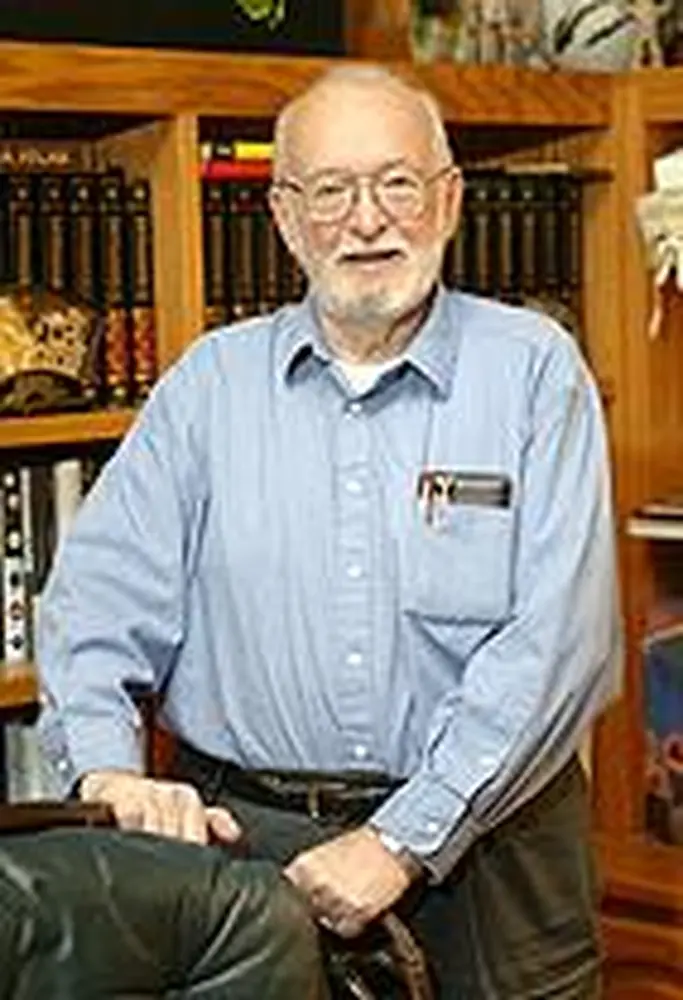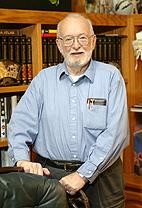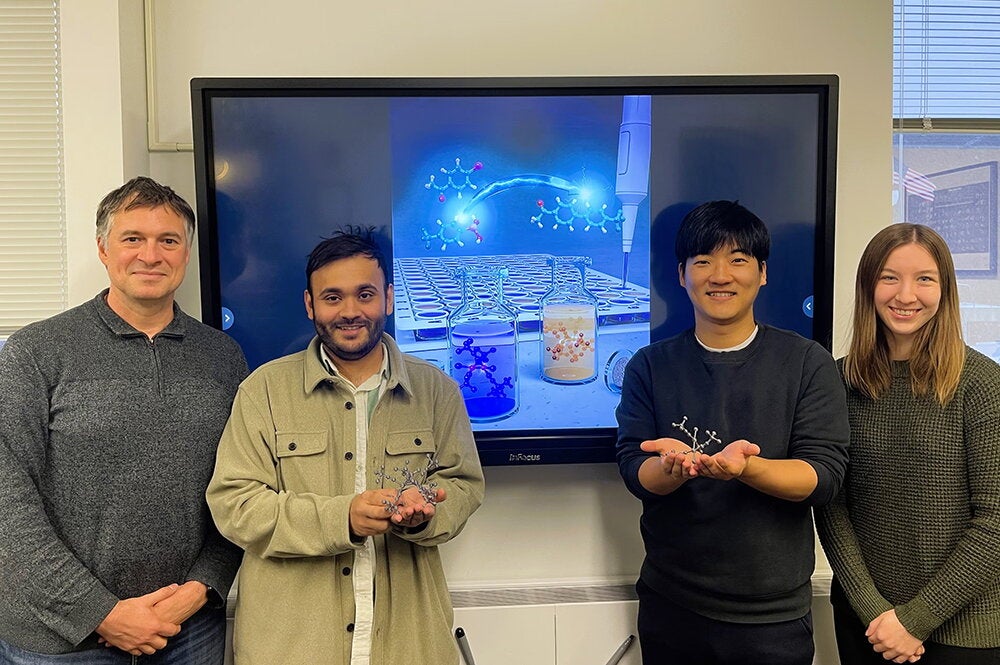

Paul C. Lauterbur, Nobel laureate and University of Illinois chemistry professor, will be inducted into the National Inventors Hall of Fame next month. But tragically, this pioneering LAS researcher will not be present to receive his honor. Lauterbur passed away March 27 at his home in Urbana at the age of 77. The cause was kidney disease.
Lauterbur was selected for the Inventors Hall of Fame for his work in the development of magnetic resonance imaging, a groundbreaking tool in modern medicine.
Sir Peter Mansfield of the University of Nottingham in England, who shared the 2003 Nobel Prize in Physiology or Medicine with Lauterbur, also will be inducted. Mansfield was a research associate in the physics department at Illinois from 1962 to 1964.
Founded in 1973 by the U.S. Patent and Trademark Office and the National Council of Intellectual Property Law Associations, the National Inventors Hall of Fame is the premier not-for-profit organization in America dedicated to recognizing, honoring, and encouraging invention and creativity.
This year's inductees include Allen Breed, who invented the automotive airbag; John Franz, who produced the most popular weed killer Roundup; and Robert Metcalfe, who created Ethernet, the widely used local area network.
The induction ceremony will be held May 4 and 5 in Akron, Ohio.
Lauterbur was among the first scientists to use nuclear magnetic resonance (NMR) in the studies of molecules, solutions, and solids. He was the first researcher to produce an image with NMR and apply the technology to medicine. This led to the development of the magnetic resonance imaging scanner, which has had a revolutionary impact on the medical profession.
Lauterbur was a Center for Advanced Study professor and held appointments in the departments of chemistry, bioengineering, and molecular and integrative physiology. He also was a Distinguished University Professor of Medical Information Sciences.
Lauterbur joined the U of I faculty in 1985, after 22 years at the State University of New York at Stony Brook.
He earned a bachelor's degree in chemistry in 1951 from the Case Institute of Technology in Cleveland, and a doctorate in chemistry in 1962 from the University of Pittsburgh.
Among his other awards are:
- The National Academy of Sciences Award for Chemistry in Service to Society (2001)
- The Kyoto Prize from the Inamori Foundation of Japan in recognition of his lifelong research accomplishments in advanced technology (1994)
- The Order of Lincoln Medallion, the state of Illinois' highest award (1992)
- The Franklin Institute of Philadelphia's Bower Award for Achievement in Science (1990)
- The National Medal of Technology (1988)
- The National Medal of Science (1987)
- The Albert Lasker Clinical Research Award (1984)
Lauterbur had also been a member of the National Academy of Sciences, and a Fellow of the American Association for the Advancement of Science and the American Physical Society.


